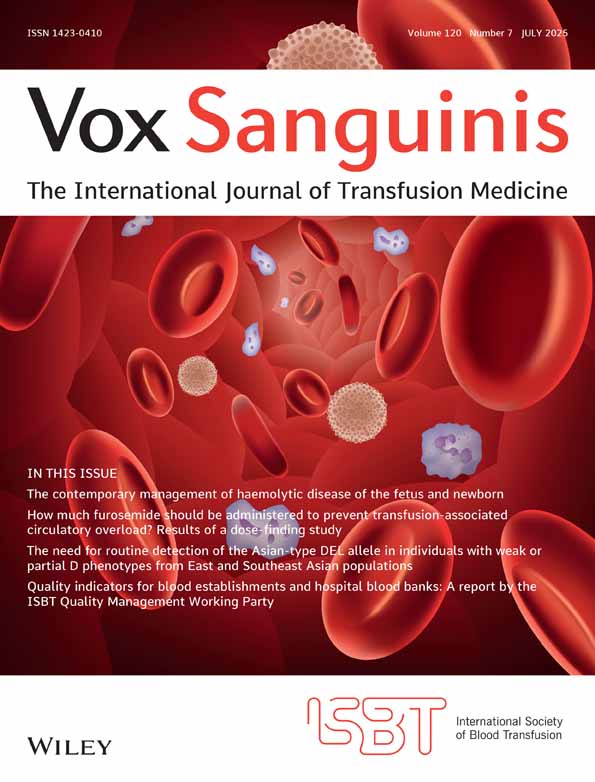Allele Frequencies of Human Platelet Antigen 1, 2, 3, and 5 Systems in Patients with Chronic Refractory Autoimmune Thrombocytopenia and in Normal Persons
Abstract
Background and Objectives: Chronic refractory autoimmune thrombocytopenic purpura (AITP) is an autoimmune disorder due to autoantibodies against platelet glycoproteins (GP). Human platelet alloantigenic (HPA) systems are distributed to different platelet GPs. We carried out genotyping of diallelic HPA-1, -2, -3, and -5 systems to clarify potential associations between HPA alleles and the development of chronic refractory AITP. Patients and Methods: DNA was isolated from 33 unrelated German patients with chronic refractory AITP and from 80 randomly selected German blood donors to determine the phenotype and allele frequencies for the HPA-1, -2, -3, and -5 systems. Fragments carrying the polymorphic sequences corresponding to those alleles were amplified by the polymerase chain reaction and further characterized by restriction analysis. Results: Whereas HPA-1, -3, and -5 allele frequencies were identical in 33 patients with chronic refractory AITP and in controls, HPA-2 allele frequencies showed a statistically significant difference (p = 0.017). In our group of patients, the HPA-2a allele frequency was 100%, but HPA-2b was not seen. In contrast, the allele frequency of HPA-2a in the control group was 92% (n = 147), and in HPA-2b it was 8% (n = 13). Conclusion: This study suggests an association between the HPA-2a allele and chronic refractory AITP. The HPA-2a allele may be involved in the formation of an AITP-specific autoepitope.




